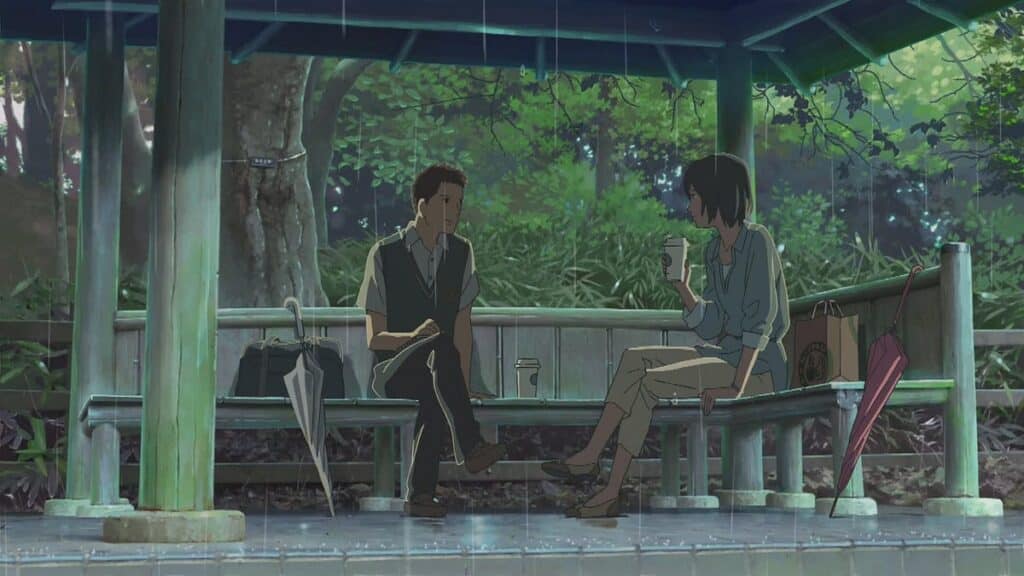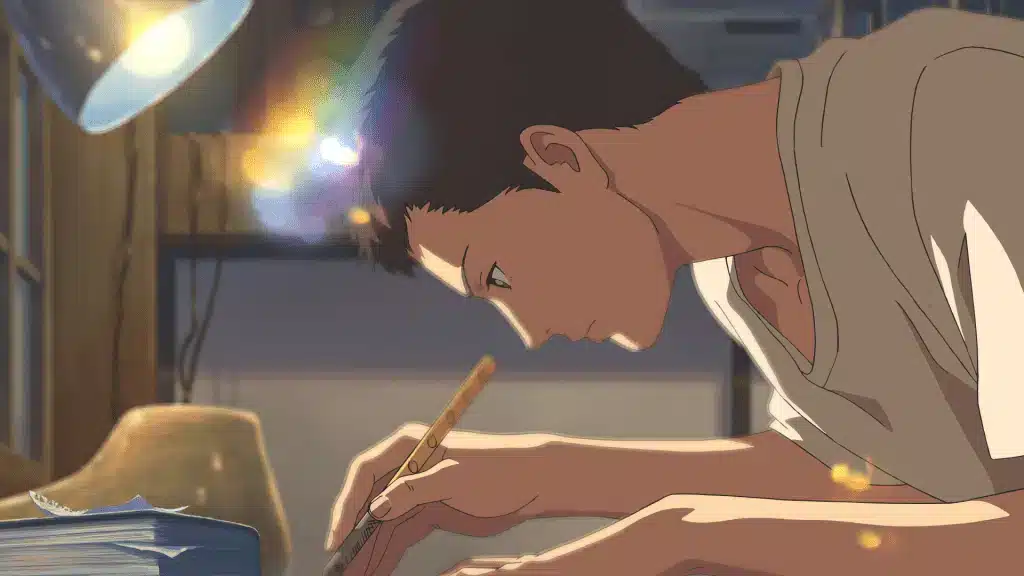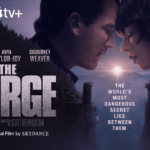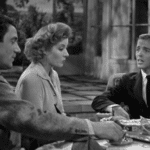If ‘Your Name’, Makoto Shinkai’s world wide blockbuster, is the first film of his 2nd career phase, then Shinkai’s fourth feature film ‘The Garden of Words’ is the final film of his most melancholic, personal phase. Clocking in at a mere 46 minutes, ‘The Garden of Words’ tells the story of Takao Akizuki, a 15-year old Japanese student whose dream job is to become a shoemaker, and his encounters in the rain with a young woman in a gazebo in a park. What starts as a chance encounter increasingly becomes a meeting Akizuki looks forward to, and despite the obvious differences between the two a bond forms that seems to grow with each rainy day.
Despite its brevity there’s a lot to say about this film, made all the more challenging as I hope to resist spoilers, but first of all what struck me is that Shinkai took full advantage of the budget to make his most beautiful film, as of the date of its release. As I’ve looked back at Shinkai’s early work for a personal retrospective of his work, I’ve seen increasingly his skills, and his art director skill,s as he’s had to bring on more and more animators to help, really blossom. This is a perfect example as it somehow leap frogs past the peaks of his previous films, already set so high by Children Who Chase Lost Voices.
I mentioned this also being the farewell to Shinkai’s first phase, and I think this absolutely the case as he himself has seen that few of his films he’s made recently, ‘Your Name’, ‘Weathering with You’, and ‘Suzume’, come from his life. ‘The Garden of Words’ though if not the connection with the mysterious young woman, still feels like we could be seeing in Akizuki a young Shinkai, who instead of shoemaking wanted to devote himself to his art perhaps with less support from his family, which he has also spoken on in the past.

The Garden of Words (CoMix Wave Films)
Now looking at the melancholy of the film, Shinkai’s really stacked this film with everything that term implies. From poems to close connections and mysterious meetings in the rain, he’s really gone all out to make this one of his most feel-worthy films, which means a lot considering this is Shinkai’s bread and butter. Though there may be some debate about the pair once more is revealed, and certainly many reviews seemed to single in on this as a love it or hate it component of the film, I think it’s hard not to be swept along by the connections of this seemingly odd pair. Shinkai does such a wonderful job of teasing out their feelings, their motivations, and even some answers to the mystery if you look for it, or like me give it a rewatch.
Once we do get to the end of the film when all is revealed, and I won’t spoil that here, the relationship that’s formed really reminded me of a ‘Lost in Translation’ pairing with two lost souls finding one another in a moment they needed each other. (I use this comparison because it’s apt; however, for me this was a much stronger film than Coppola’s attempt.) Though what we know by the end still leaves a lot of questions, it at least helps understand the motivation of one, if not both, characters, and I think that only adds to the beauty and impact of the film.

The Garden of Words (CoMix Wave Films)
‘The Garden of Words’ of his feature films, perhaps because its so short, seems to be the one most looked over by fans; however, I presently consider it in the top half of Shinkai’s canon. To do so much with so little only proves what we’ve always known since Shinkai’s early works ‘She and Her Cat’ and ‘Voices of a Distant Star’, which is that Shinkai understands people, the connections we crave and need, and the fragility of those formed relationships. We too undoubtedly have had friends, family, lovers, and others come in and out of our lives, and maybe we too wish that like young Akizuki we could meet them again on one delightfully rainy day in the park.








